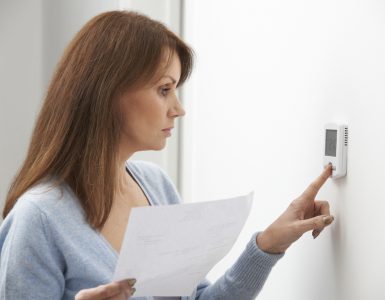Then a rent-to-own home lease could be your ideal fit. Before you jump into it, though, there are a few things you should know.
Intro To Rent-To-Own Homes
Housing can be a real pain if your finances aren’t where you’d like them to be. If you’re renting, you’ll probably yearn to be a homeowner, as you feel like paying rent to your landlord is making them richer while depleting your bank account. But to become a homeowner, you need significant savings for a down payment and solid credit to get a mortgage.
How can you continue to rent without wasting your hard-earned money and take small steps to become a homeowner? By entering a rent-to-own contract that lets you rent a property for a few years and enjoy the option of buying it and making it yours once the lease is complete.
If this sounds too good to be true, it’s not, as it is a homebuying option for some. Why would a landlord give you the option to buy their property at a later date instead of making you purchase it now? Because in a rent-to-own agreement, they charge a higher rent than market value. Where does that excess payment go? Towards the eventual down payment on the property. In other words, rent-to-own agreements help you save for a home’s down payment while you get to live in it to test it out for a few years.
Is higher rent the only expense you have to worry about when entering a rent-to-own home contract? No, as some landlords may charge an option fee that lets you secure the right to buy the home once your lease is up. This fee isn’t cheap, as it can equal 1-7 percent of the property’s value. It may be worth it in the end, however, if you really enjoy the property and want to continue living there as the homeowner in the future. Plus, the option fee could be used as part of the down payment.
Advantages And Disadvantages Of Rent-To-Own Homes
There are several advantages of rent-to-own homes, with the first being that it helps you save for a down payment while testing out the home to ensure you like it before committing to a purchase. Depending on the contract you enter, rent-to-own homes also give you the flexibility of leaving or staying once the lease ends. And in terms of repairs, rent-to-own contracts can help you save by splitting the costs with the landlord until you become the homeowner.
The main disadvantage of rent-to-own homes is that you could lose cash if you decide to move and not purchase the property. You could lose the option fee and whatever you saved for the down payment via the excess rent. And if you want to buy the home but cannot get approved for a mortgage, you could end up losing your cash too, plus the property could get filled by another tenant or purchased by another buyer.
How To Decide On A Rent-To-Own Home
If you’re wondering if a rent-to-own agreement is a smart move for your situation, it could be if you want to buy a house but need to save for a down payment or boost your credit first. And if you tend to overspend on other things, entering a rent-to-own contract could help you save for a down payment via the premium you pay on the monthly rent. Also, you may consider a rent-to-own home if you love the property and know it’s in the perfect location for your needs. In short, renting it now and buying the house may be ideal if you want to be there in the future.
On the flip side, if you are always late on rent, have poor credit that could prevent you from getting a mortgage after your lease ends, or are not sure you’d want to live in the home in a few years, a rent-to-own contract may not be suitable for you.




